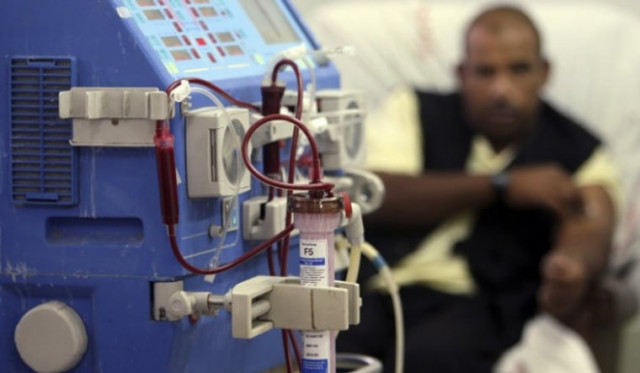Soon, valley residents say life-saving treatment 60 miles away is costing them their health and their savings.
KHOUSHAB:
Hundreds of kidney disease patients in Tehsil Nowshera are trapped in a worsening health crisis as the region continues to function without a single dialysis center.
With no local treatment available, patients must endure a grueling 60-kilometer journey over rough, mountainous roads to Khushab several times a week, a grueling and risky ordeal that has become their only lifeline.
Educationist Malik Usman Ghazi Awan told Express that the 60-kilometer stony and uneven road between Nowshera and Khushab is a severe ordeal for any frail patient.
Kidney disease patients, already dealing with extreme weakness, shortness of breath and fatigue, must undertake this dangerous journey two to three times a week. The one-way journey can take up to two hours.
“After dialysis, when their bodies are completely drained, the jolts of the return trip and the long waits break them even more,” he says.
Families of several patients say their loved ones’ health deteriorates not inside the hospital, but during the grueling journey.
The crisis is not only physical but also financial. Small farmers and laborers spend thousands of rupees every two days on transportation and fuel, an amount that often exceeds the cost of dialysis itself.
Many households in the valley are financially ruined; jewelry and ancestral lands were sold just to keep up with the endless 60-kilometer cycle of suffering.
Political and social personality Malik Saleem Awan said the “most shameful role” in this tragedy is that of elected officials and the tehsil administration.
“The people who were supposed to be their spokespersons never raised this issue at the meeting or took serious steps to secure emergency funds,” he said. “They only come to ask for votes. When people need action to save lives, they treat the file like a worthless piece of paper.”
He added that priority was repeatedly given to vested interests and construction projects with higher “commission potential”, revealing what he described as “acute incompetence and moral bankruptcy”.
Saleem Awan said that even though THQ Hospital in Nowshera already has the space and basic infrastructure for a dialysis unit, the tehsil level officers showed “criminal negligence” by delaying the case every time on the pretext of “lack of funds”, despite knowing that such delays could lead to deaths on the road.
Social activist Malik Shehbaz Awan questioned the silence of the Punjab government, calling it alarming.
“Despite the great demands for health care reforms, why is the provincial government ignoring the basic right to treatment of almost 200,000 residents of Nowshera? » he questioned.
“People are demanding that the Chief Minister and Provincial Health Minister immediately take notice and release emergency funds. Patients cannot bear another day of this deadly journey.”
He said that the people of Soon Valley are now pinning their hopes on an influential personality belonging to the valley, Attorney General of Pakistan Malik Mansoor Usman Awan.
Originally from the region, he is well aware of the geographical and economic difficulties of the region.
The residents asked him to intervene personally and use his influence to convince the Punjab government to establish a dialysis center without delay.
“The people consider him their true representative,” Shehbaz said. “A strong voice from him can end this collective suffering and ensure the immediate installation of dialysis machines at THQ Nowshera. This is the time for him to repay his motherland.”
When contacted, Dr Saima Ikram, CEO of Khushab Health, said there were no official plans, approvals or documentation for the establishment, expansion or operationalization of a dialysis unit at THQ Hospital, Nowshera.




